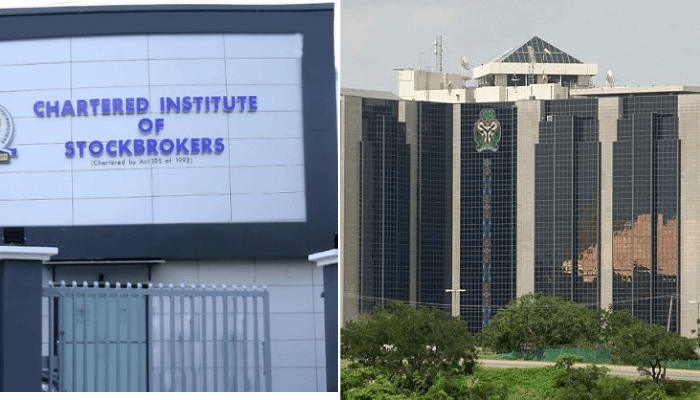26th April 2024
The Chartered Institute of Stockbrokers (CIS) has requested some strategic support from the Central Bank of Nigeria (CBN) to enhance financial intermediation roles of its members and boost transactions in the Nigerian securities market.
During a recent courtesy visit to by the leadership of the institute to the apex bank’s governor, Olayemi Cardoso, who is also a stockbroker, in his Lagos office, the senior stockbrokers, led by the President and Chairman of Council, Oluwole Adeosun, applauded the appointment of senior stockbrokers into some key sectors of the economy by the Federal Government.
Adeosun, who noted that Cardoso had been a long standing member of the institute explained that stockbroking firms required some support from CBN to enable them operate optimally and attract more participants into the market.
Besides, Adeosun affirmed the capacity and willingness of stockbrokers to support the proposed recapitalization of banks in the next 24 months.
According to him, this had been demonstrated during the previous recapitalization programmes in Nigeria.
“The Nigerian capital market, has the capacity to support the recapitalization exercise.
“It was amply demonstrated during the indigenization exercise as far bask as 1972. and successive banking sector recapitalization programmes over the years up till the last major banking recapitalization exercise between 2004 – 2006.
“As we did in the last exercise as Issuing Houses/financial advisers and Stockbrokers to the Capital Issues amongst others. With technology and new subscription channels like mobile apps, the current exercise should record even greater success and bring in more and younger Nigerians into the investment community.
“We request that securities of publicly listed banks should be allowed as marginable securities as long as these securities pass the “Criteria for Determining Marginable Securities” test. Margin lending drives the growth of capital markets in the advanced countries by enabling investors to acquire securities in excess of their direct savings within a regulated market framework. Our market will not be able to match the required growth rate if investors remain restricted to just their own funds for investments. Our perspective is that bank stocks be allowed, but a specific borrower should not invest in the shares of the bank that gave them the margin loan. The banking sector is one of the most active sectors in the Nigerian stock market and the first choice for most investors’ portfolios,” said Adeosun.
“Pension funds are globally the foundational base that drive sustainable liquidity for the local equity market. While the Pension Act permits the Pension Fund Administrators to invest up to 25% of their pension assets in the equity arm of the capital market, we have noticed that about 10% of the funds are invested in the equity market, despite the enhanced regulation, investor protection, and high return in the market.
“Given the critical role of pension fund investment in galvanizing liquidity in the domestic equity market, Pension Fund Administrators (PFAs) should be investing a substantially higher proportion of their funds on equities. We therefore seek the support of the CBN to engage with PENCOM in this regard,” he added.
Responding, Cardoso appreciated the visit and assured the Institute that all the issues raised would be looked at dispassionately. The Governor promised to establish an enduring institutionalized structure .
The newly launched book of CIS, titled: ‘History of The Nigerian Capital Market’ was presented to Cardoso.
The President was accompanied on the visit by other office holders and five past presidents.
